In the forty years since the appearance of his first novel, Carrie, King has published more than fifty books, and all of them have been huge commercial successes around the world. Everyone knows about his well-known rule of writing six pages a day. Thanks to this, Stephen King managed to write so many books that it’s hard to fit them all on a bookshelf. But which authors could be good new additions to your horror/thriller collection? We recommend giving the following writers a chance:
Dean Koontz
If Stephen King is the Rolling Stones of novels, Koontz is the Beatles.
— Playboy
If you love Stephen King’s blend of horror and suspense, you should definitely check out author Dean Koontz. Fourteen of his novels are New York Times bestsellers (One Door Away From Heaven, From the Corner of His Eye, Midnight, Cold Fire, The Bad Place, Hideaway, Dragon Tears, Intensity, Sole Survivor, The Husband, Odd Hours, Relentless, What the Night Knows, and 77 Shadow Street).
His books are not just horror stories you read for thrills — they often explore deep questions about God, the meaning of human existence, and the fragility of life. These pages are soaked in satire and irony, and you certainly won’t find the same tired clichés here. People say Dean Koontz is not a writer you should underestimate. Each of his novels stands on its own and breaks traditional molds of horror.
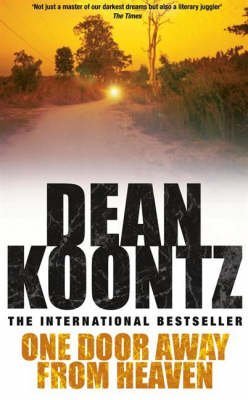
Caitlín R. Kiernan
“I'm getting tired of telling people that I'm not a 'horror' writer. I'm getting tired of them not listening, or not believing.
— Caitlín R. Kiernan
Her writing is something completely unique, blending Gothic, cosmic horror, and a dark, poetic style. Try her best-of collection featuring 20 short stories like Andromeda Among the Stones, La Peau Verte, Houses Under the Sea, Bradbury Weather, A Child’s Guide to the Hollow Hills, The Ammonite Violin (Murder Ballad No. 4), and many more.
Kiernan’s narrative is provocative, mysterious, and soothing, yet frightening enough to stay with you. She doesn’t just write horror books. Her work is deeply moving and intellectually rich. Some even call her a true genius. The atmosphere of her prose will linger long after you finish reading.
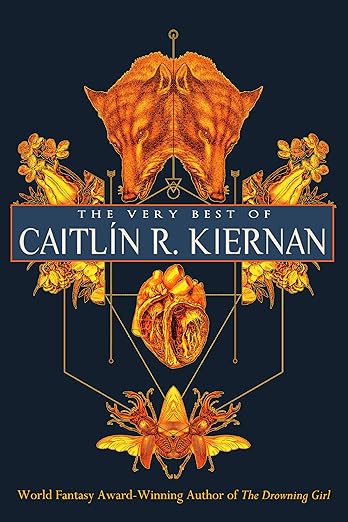
Peter Straub
He brought a poet's sensibility to the field, creating a synthesis of horror and beauty.
— Stephen King on Straub
Straub’s style is unique and sometimes challenging. If you’re new to him, it might take time to appreciate his eerie madness. But if you love strong characters and lyrical prose, he’s worth the effort. His standout novels include Julia, Ghost Story, and The Talisman, co-written with Stephen King. Many famous authors admired him: Neil Gaiman called him a wonderful writer and close friend; Andrew Shaffer even named characters in Secret Santa after Stephen King, Anne Rice, and Straub, dubbing them “the unholy trinity” of horror.
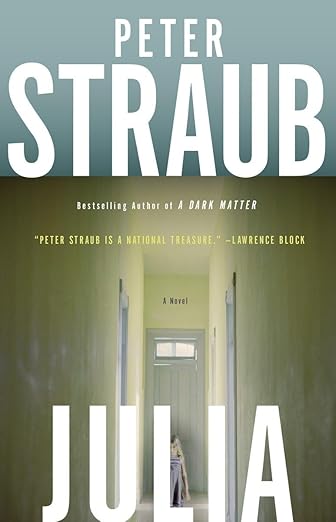
Alma Katsu
I write stories that unsettle, stories that haunt you long after the last page is turned.
— Alma Katsu
A master of blending historical fiction with horror, Alma Katsu is one of the greatest horror authors of our time. Her novels The Hunger and The Deep are prime examples — full of slow-burning dread in real historical settings. You won’t just get another haunted house story. In The Hunger, she retells the tale of the Donner Party, where cold and starvation drove people to cannibalism. No ghosts — just horrifying human choices.
A former intelligence analyst, Katsu brings psychological depth and realism to her characters. Her prose is elegant, and your imagination will be working overtime.
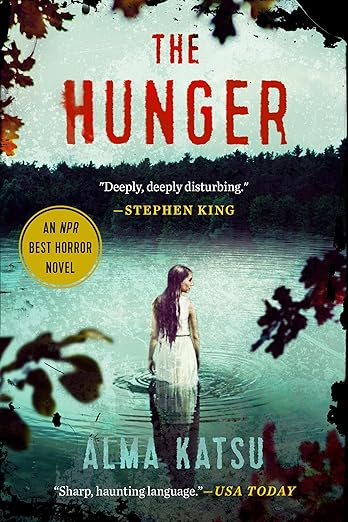
Robert McCammon
I write about the human struggle… even when the monsters are real.
— Robert McCammon
One of the most influential legends in the genre, Robert McCammon, blends historical fiction with horror seamlessly. His masterpiece, Swan Song, is a post-apocalyptic epic exploring the eternal struggle between good and evil. If you haven’t read Swan Song by Robert McCammon, it’s time to add it to your list.
McCammon’s novels combine action with emotional storytelling. His unique touch? A rare optimism not often found in horror books. As he says, “I want the reader to feel good about themselves when they close the book. I want them to have learned something — or felt something real.”
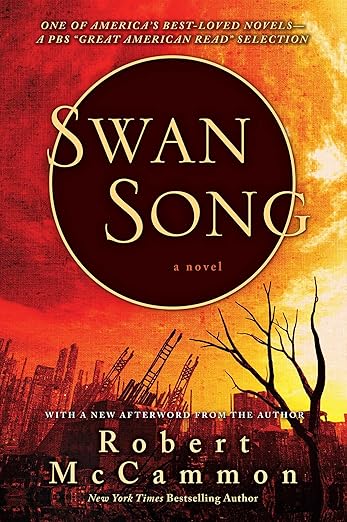
Lauren Beukes
Reality is just a fiction we all agree on.
— Lauren Beukes
Lauren Beukes is perfect for readers who love smart, brutal stories written by women for women. Her bestseller novel The Shining Girls put her on the map with its chilling concept: a time-traveling serial killer and the female victim who didn’t just survive — but decided to get her revenge. It’s brutal, smart, and layered with social commentary.
Here, you won't just find an interesting story — Beukes delves deeply into Chicago history to build her time-traveling plot. You can actually feel how much effort she put into creating a complex and well-structured narrative.
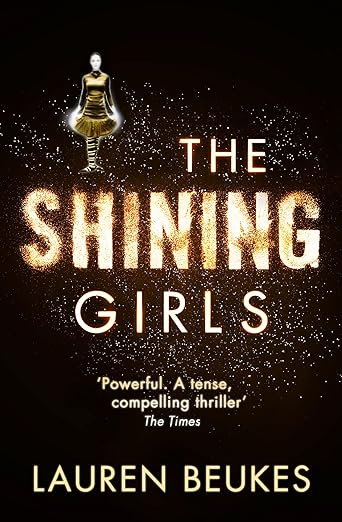
Joe Hill
Monsters are real. Ghosts are too. They live inside of us, and sometimes, they win.
— Joe Hill
It's impossible to overlook Joe Hill when it comes to authors like King — he is Stephen King's son, after all. But Hill has created his own unique voice in the horror genre. His works are often more austere and more violent but are filled with the emotional depth that characterizes his father's books.
Hill’s book NOS4A2 (read as “Nosferatu”) is a chilling Christmas horror story that blends sci-fi, trauma, and suspense. In it, a young artist battles the immortal maniac Charles Manx, who holds the souls of the children he has abducted and murdered in the sinister Christmas Land. Hill’s short fiction is indeed amazing as well. Ghosts of the 20th Century is filled with unforgettable stories. If you like the father, you will definitely like the son — be sure Hill is in this list, not just as a nepo baby.
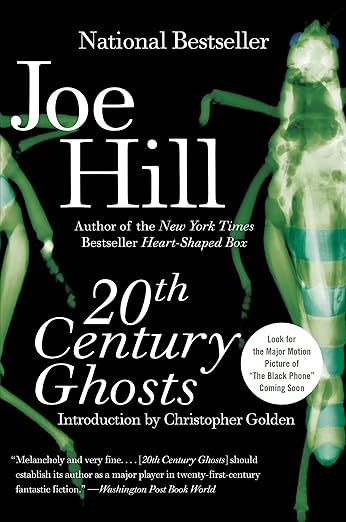
Paul Tremblay
The closer a horror story gets to the truth of things, the more affective it is going to be.
— Paul G. Tremblay
If you enjoy psychological thrillers, Paul Tremblay is a must-read. His stories are filled with ambiguity, dread, and creeping horror. In The Cabin at the End of the World, a family’s quiet vacation is disrupted by a strange and terrifying invasion. But don’t expect another haunted house cliché. The Cabin at the End of the World is a challenge to all those novels that resemble one another. The author simply decided to write how he would like to see this familiar story. And that's what Paul Tremblay is all about — he just takes and challenges the modern horror genre, where there seems to be no room for originality.
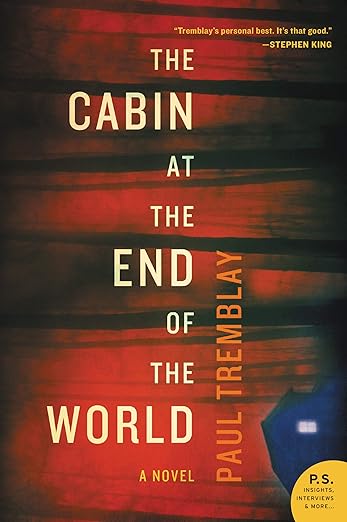
It can be unclear why people enjoy horror as a genre. After all, we ourselves live in a rather frightening world, so why do we need scary fiction? However, here we are, devouring horror books one by one, and looking for the one that will scare us the most. With this selection of the best authors of the genre, you are guaranteed to get happily lost in the book world.










